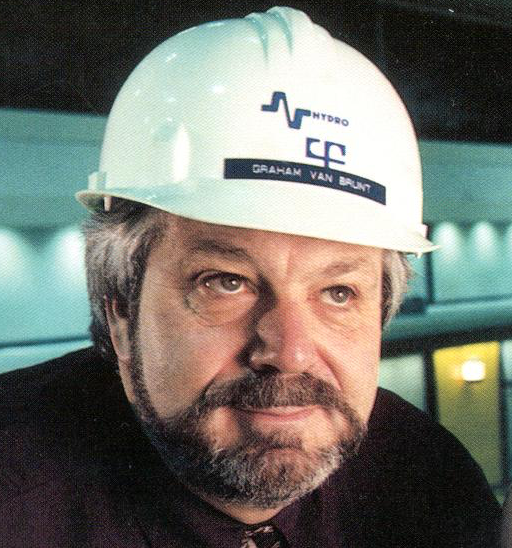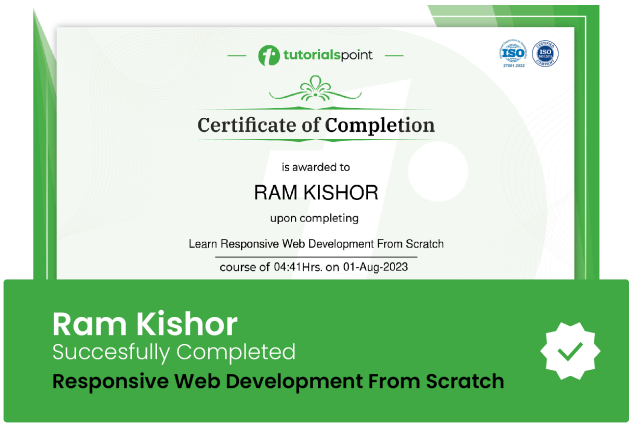Electric Power Metering for Single and Three Phase Systems
Presents the fundamentals of instrument and metering in utilities and industry

Lectures -9
Resources -2
Duration -4 hours

30-days Money-Back Guarantee
Get your team access to 10000+ top Tutorials Point courses anytime, anywhere.
Course Description
This course concentrates on the electricity meter, electric meter, electrical meter, energy meter, or kilowatt-hour meter which is a device that measures the amount of electric energy consumed by a residence, a business, or an electrically powered device.
Electric meter or energy meter measurements, the total power consumed over time are examined.
Electric meters installed at customers' premises for billing and monitoring purposes are examined from the electric utility perspective. The typical calibrated billing units are developed, the most common one being the kilowatt-hour (kWh) and how they are read once each billing period.
If desired, some meters may measure demand, and the maximum use of power in some intervals. "Time of use" metering allows electric rates to be changed during the day, to record usage during peak high-cost periods and off-peak, lower-cost, periods.
Single-phase and three-phase metering measurements are also covered.
Learning Outcomes:
- Graduates of this course will be familiar with the following:
- What is Electric Power
- AC & DC Power
- Voltage Current, & Power Vectors (Phases)
- Capacitive & Inductive Loads
- Real Reactive & Apparent Power (Watts, Vats, VA)
- The Dynamometer Wattmeter
- The Energy Meter
- Instrument Transformers (Current & Voltage CT's & PT's)
- 3-Wire, Single-Phase Metering
- Polyphase Energy Meters
- 3-Wire, Single-Phase Metering with CTs & PTs
- Metering a 3 Phase 4 Wire Load ("Y" Connected)
- Metering a 3 Phase 3 Wire Load (Delta Connected)
- Metering Measurement Standards
- Blonde's Theorem
- Phase & Line Relationship
Who this course is for:
- Electrical Power Systems Managers, Engineers, Technologists, Maintenance Workers, Students in Engineering
- Anyone who wants to learn power & energy measurement of a three-phase system
Goals
What will you learn in this course:
The student will understand the physics of electrical power and the instrumentation involved in measuring single and three-phase power flow.
Example: Understanding digital & analog Watt meters, Kwhr Meters, and polyphase connections.
Prerequisites
What are the prerequisites for this course?
You should have a basic understanding of single and three-phase power systems.
You should have a basic understanding of an electrical three-phase power system.

Curriculum
Check out the detailed breakdown of what’s inside the course
Introduction
9 Lectures
-
Basic Metering Introduction 01:03 01:03
-
Power & Energy 14:54 14:54
-
AC Power 50:38 50:38
-
Instrumentation 39:28 39:28
-
Single Phase Metering 34:09 34:09
-
Instrument Transformers 32:47 32:47
-
Three Phase Metering 42:23 42:23
-
Cross Wattmeter Verification 32:24 32:24
-
Resources
Instructor Details

Graham Van Brunt
eCourse Certificate
Use your certificate to make a career change or to advance in your current career.

Our students work
with the Best


































Related Video Courses
View MoreAnnual Membership
Become a valued member of Tutorials Point and enjoy unlimited access to our vast library of top-rated Video Courses
Subscribe now
Online Certifications
Master prominent technologies at full length and become a valued certified professional.
Explore Now



 Updated on Apr, 2024
Updated on Apr, 2024
 Language - English
Language - English